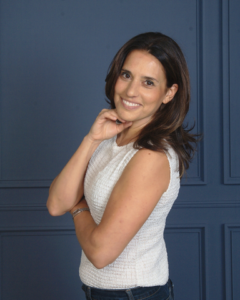When a part of us that wants something is in conflict with a fearful part of ourselves, there is internal friction. These two parts rub against each other and often the fearful part wins. That is how self-sabotage comes into play. To complicate matters, we are often completely unaware of what drives us to sabotage our dreams.
Fear is a strong emotion intended to keep us safe, but when it comes to taking risks, it can mis-read the situation and create a bigger deal of it in our mind than is necessary. While initially fear was helpful for keeping us alive by alerting us to life-threatening dangers, today it is what keeps us from taking risks. It can paralyze us.
Not only do we see inactivity as a result of fear, we hear a certain story being told. It is the story that excuses our behavior.
An excuse is an explanation given for why we don’t do something we know we should do or an explanation for doing something we know we shouldn’t do. But it’s more than just an explanation. It is our way of avoiding responsibility.
Meet Abby
Abby is a middle-aged woman who once had a career, but as a result of a medical issue, stopped working. She married an older man who was able to support her financially, making working for money a non-necessity. Years passed and Abby became disenchanted with her life. Not only was her husband highly controlling of her, but she became depressed. She had nothing to wake up for in the morning. Her life lacked purpose.
She came to recognize that there was a hole in her life. She talked ceaselessly about what she wanted, but never took any steps to move her career forward. She would reminisce about the old days and how things used to be when she was working. But now things were different. She said it wasn’t possible for her to work because of her medical condition. It wasn’t possible for her to work because her husband was so controlling. It wasn’t possible for her to work because she was way too anxious around people.
Meet Barbara
Barbara is a recovering drug user and alcoholic. Although she is single and has no children, this 30 year-old has a very hectic schedule. She works during the day to pay the bills, then goes to Alcoholics Anonymous (AA) meetings at night, socializes with friends, and focuses on her creative writing in her spare time.
On the surface, Barbara sounds like someone who leads a full life, right? Unlike Abby, she has lots to wake up for each morning. But as it turns out, Barbara has an emotional eating problem. She tends to overeat when she is experiencing negative emotions and because this happens frequently enough, it’s become a habit that’s led to significant weight gain. She describes feeling physically uncomfortable in her body. Moreover, her excess weight has negatively affected her self-image.
While she recognizes that her emotional eating is a problematic behavior that contributes to her physical discomfort, she doesn’t want change. In her mind, she has given up so much already by cutting out drugs and alcohol. Food is all she’s got left. She doesn’t want to give it up too because “what else is there?”
Meet Cathy
Cathy is a mother of two young adults and the wife of an overachiever. Her children have been the center of her world for so long, but now that they are off to college, she is left at home to contend with the fact that her husband is hardly ever home. He works from early in the morning until late at night. When he gets home, he is so tired that he has little energy to engage with her in conversation, let alone be intimate. On the weekends, he begs to have a little time to go to the office and get more work done because no one else will be there and it will give him a chance to get ahead of the curve.
This is not a new trend. Cathy’s husband has been working hard and traveling often for work throughout their marriage of over two decades. It leaves Cathy feeling invisible. She wants a drastic change, but is terrified about what this might mean, so she avoids talking to her husband about her needs.
Types of Excuses
No doubt, we have good reasons for making excuses for our decisions. We’ve already established that underlying these excuses is fear. But that may not be apparent to both the person making the excuse or the person hearing about it.
Excuses come in a variety of flavors. There are resource-focused excuses such as “It costs too much and I can’t afford it”; “I don’t have the time. I’m way too busy as it is”; “It would take way too much energy and I’m exhausted as it is.”
There are defense-related excuses. These are like rationalizations for why keeping the problem is okay. An example is a person who doesn’t go on a diet even when deep down they are unhappy with the way they look or feel. What they tell themselves and others is “I don’t want to lose weight. I’m fine the way I am.”
Blame-related excuses are about finding a culprit outside of yourself. Rather than taking action, you might say “If it weren’t for him, I would, but now I can’t.” Alternatively, you might use a physical problem as your reason for not pursuing your goal, such as “my back hurts too much.”
As a side note, because fear is held in the kidneys, it can often lead to back pain. And furthermore, we might unconsciously develop back pain when we are looking for an excuse not to engage in an activity that scares us.
Lack-related excuses are about what’s missing that is causing you to stall. For instance, you might think “I don’t have enough experience;” “I don’t feel confident that I can succeed;” “I just need to take another training and then I’ll be ready.” The latter excuse is one entrepreneurs and perfectionists often make as a way to ensure they have more knowledge than before, but often find they need more and more trainings instead of taking the leap.
What We Miss Out On
When we make excuses, we avoid potential failure, pain, rejection, and embarrassment. It makes sense why, then, we would continue making them. We are playing it safe. But what’s the other side of this coin? What are we missing out on by not facing our fears?
Abby resorts to staying in bed most days until the early afternoon. At night she drinks heavily to numb the pain of her purposeless life. She gets to daydream about “what would happen if” but because she doesn’t take the necessary steps, she misses out on the opportunity to reshape her life, to restart her career, and to live a life with purpose.
Barbara feels uncomfortable in her own skin. She stuffs her emotions down with food rather than deal with them in a healthy way. While she has successfully remained sober since joining AA, her mentality has not changed. She continues to think about consumption from a perspective of entitlement and therefore doesn’t want to give up her unhealthy habit. What she is missing out on is balance through emotional management, as well as confidence, comfort, and an improved self-image as a result of leading a healthy lifestyle.
Cathy misses out on intimacy. Her lack of communication with her husband and her avoidance of further action steps keep her stuck in a marriage without intimacy. By sharing her desires, she can test the waters and see whether her husband is willing to move toward her or whether he himself will make excuses. And if he does, she can decide whether she wants to stay in the marriage or find someone else who is available and able to give her what she needs.
Conclusion
Benjamin Franklin once said, “He that is good for making excuses is seldom good for anything else.” Excuses give us a way to hide. They are an avoidance tactic that keeps us from going after what we truly want. While in the short-term we feel safe because there are low expectations, little chance of failure, and not much change that has to happen, long-term we suffer for all that we miss out on. Excuses lead us to wish things were different rather than taking action to make them so.
—————————-
Sometimes we make excuses due to burnout. If that’s you, grab my Burnout Checklist. You’ll find out the exact steps you need to take to get immediate results.
Click here to get the checklist.
Author



Recent Comments